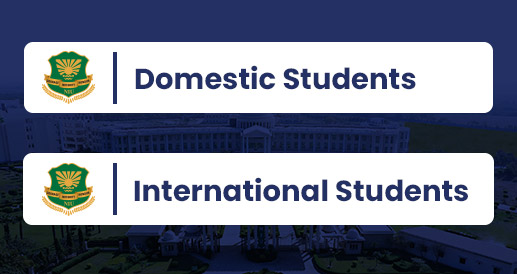Noida International University Department of Pharmacy Collaboration with Government of India, Ministry of MSME :
Name of the Event: WORKSHOP
Organized By: Government of India, Ministry of MSME
DATE OF THE ACTIVITY: 11/09/2024
Venue: School Of Pharmacy, Noida International University.
Organizing Body: Micro, Small & Medium Enterprises (MSME) – Development & Facilitation Office, Okhla, New Delhi
INTRODUCTION
The Entrepreneurship Awareness Programme (EAP), held on 11th September 2024, at Noida International University, was organized by the Government of India, Ministry of Micro, Small & Medium Enterprises (MSME), under the Development & Facilitation Office located in Okhla, New Delhi. This program was a part of the broader Azadi Ka Amrit Mahotsav celebrations, marking 75 years of India’s independence, and aimed at promoting entrepreneurship, self-reliance, and business development across various sectors, including pharmaceuticals.
OBJECTIVE
The “EAP” focused on raising awareness among students and aspiring entrepreneurs about the myriad opportunities, resources, and government schemes available for establishing and growing small and medium businesses. Special emphasis was placed on empowering entrepreneurs from sectors such as pharmaceuticals, healthcare, manufacturing, and other key industries supported by the “MSME Ministry”.
The primary objectives of the program were:
– Educating participants about the various financial, technical, and managerial support provided by the MSME Ministry.
– Encouraging entrepreneurial ventures in sectors like pharmaceuticals, which have significant growth potential.
– Creating an ecosystem for students and budding entrepreneurs to access resources, training, and financial assistance offered by the government.
Key Highlights of the Program
MSME Sector Support: The program highlighted the pivotal role the MSME sector plays in India’s economic development, especially in fostering innovation, job creation, and self-employment opportunities.
Government Schemes & Benefits: Representatives from the MSME Ministry detailed various schemes aimed at supporting startups and small businesses. Entrepreneurs were informed about credit schemes, financial aid, and technology upgradation opportunities provided by the ministry to help them compete in national and international markets.
Pharmaceutical Sector Focus: A special segment of the event was dedicated to discussing the applications of MSME programs in the “pharmaceutical sector”, which is crucial for India’s healthcare and manufacturing industries.
Basic Conditions and MSME Applications for Pharmaceutical Businesses:
Pharmaceutical businesses, like many other sectors, benefit significantly from the MSME Ministry’s schemes, provided they meet the required investment and turnover criteria. Businesses falling under Micro, Small, or Medium Enterprises can avail various forms of financial and technical assistance to help them grow.
Basic Conditions for MSMEs in the Pharmaceutical Industry:
- Micro Enterprises: Investment up to ₹1 crore; turnover up to ₹5 crore.
- Small Enterprises:Investment up to ₹10 crore; turnover up to ₹50 crore.
- Medium Enterprises: Investment up to ₹50 crore; turnover up to ₹250 crore.
Pharmaceutical companies that meet these thresholds can register under the MSME classification, thereby accessing numerous government initiatives.
Applications of MSME Programs for Pharmaceutical Businesses:
- Financial Assistance:
– Credit Guarantee Scheme (CGTMSE): Pharmaceutical businesses can secure collateral-free loans up to ₹2 crore, ensuring easier access to capital for operations or expansion.
– MUDRA Loans: Micro-pharmaceutical enterprises are eligible for loans up to ₹10 lakhs at low interest rates, allowing small-scale businesses to grow.
- Technology Upgradation:
– Credit Linked Capital Subsidy Scheme (CLCSS): This scheme helps businesses modernize their manufacturing processes with a 15% capital subsidy on equipment and plant machinery.
– ZED Certification (Zero Defect, Zero Effect): Encourages MSMEs to focus on product quality and environmental sustainability, which is particularly relevant for pharmaceutical manufacturing units.
- Skill Development & Training:
Pharmaceutical entrepreneurs can benefit from MSME-sponsored training programs, which help enhance their technical expertise and managerial skills, improving operational efficiency and compliance with industry standards.
- Market Access & Export Support:
MSME initiatives help pharmaceutical businesses participate in government procurement schemes and international trade shows, providing them with broader market exposure.
- Intellectual Property Rights (IPR) Facilitation:
Pharmaceutical MSMEs can take advantage of the MSME Ministry’s financial support to file for patents, trademarks, and other intellectual property rights, critical for safeguarding innovations in the sector.
CONCLUSION
The Entrepreneurship Awareness Programme (EAP) proved to be an invaluable platform for aspiring entrepreneurs to gain insights into the MSME ecosystem. Special attention to the pharmaceutical sector underscored the government’s commitment to supporting this high-potential industry, offering entrepreneurs a wide array of resources and incentives to help them establish, grow, and sustain their ventures.
The focus on MSME programs, such as financial assistance, technology upgrades, and market access initiatives, demonstrates how the government is fostering innovation, job creation, and economic growth across sectors. The program left attendees motivated to explore new entrepreneurial ventures, particularly in industries like pharmaceuticals, where the potential for growth is enormous with the right support mechanisms in place.


